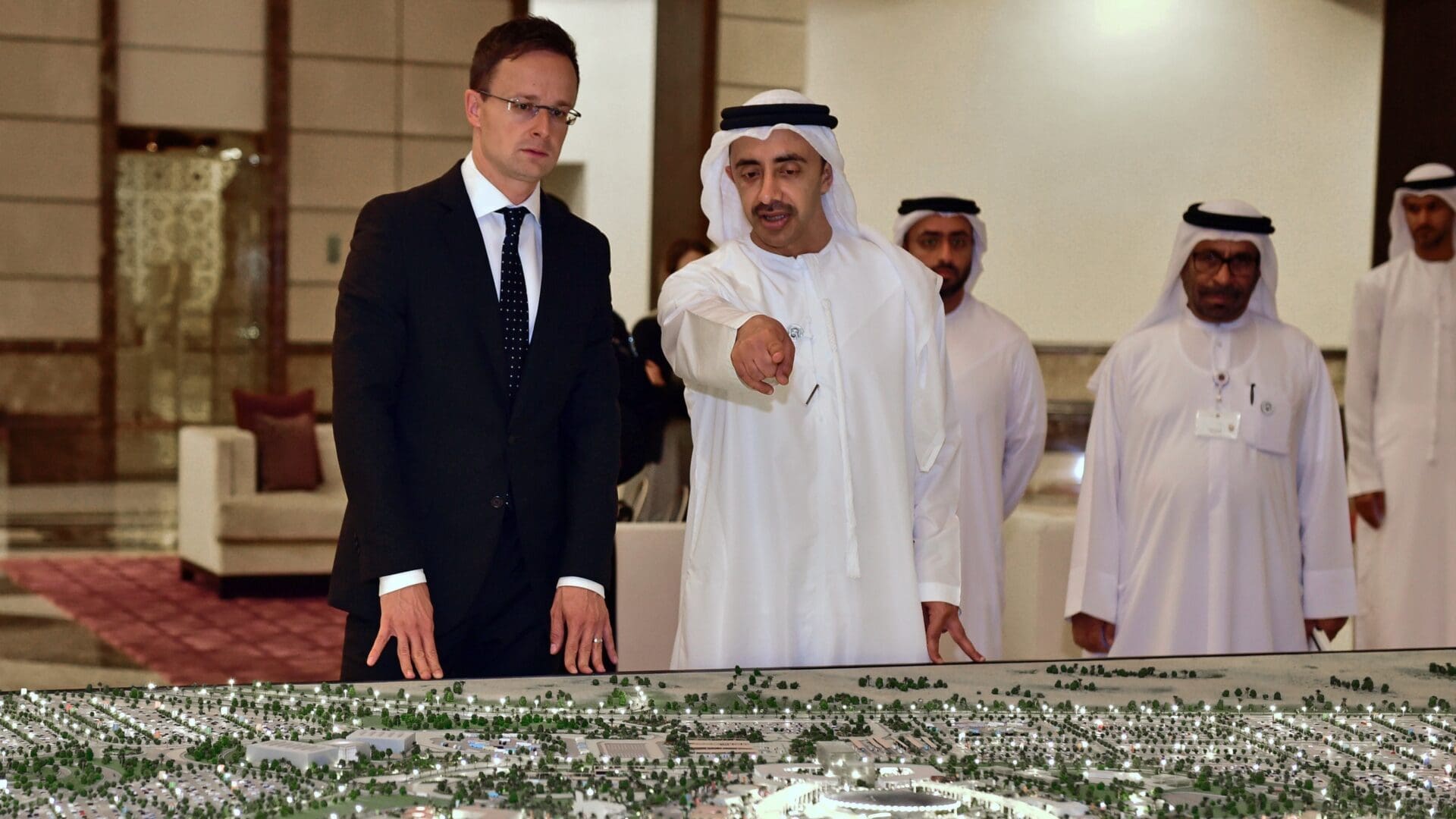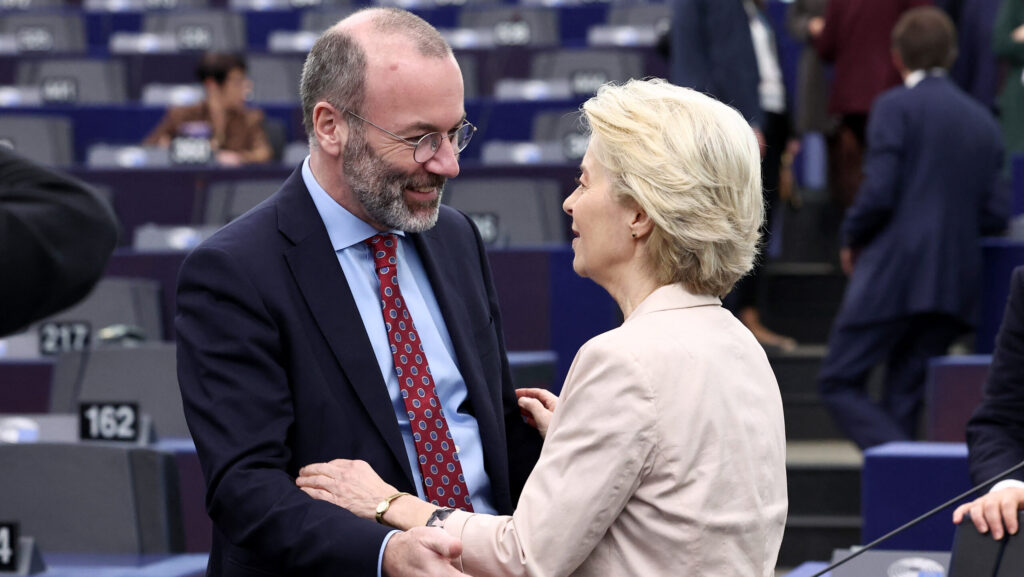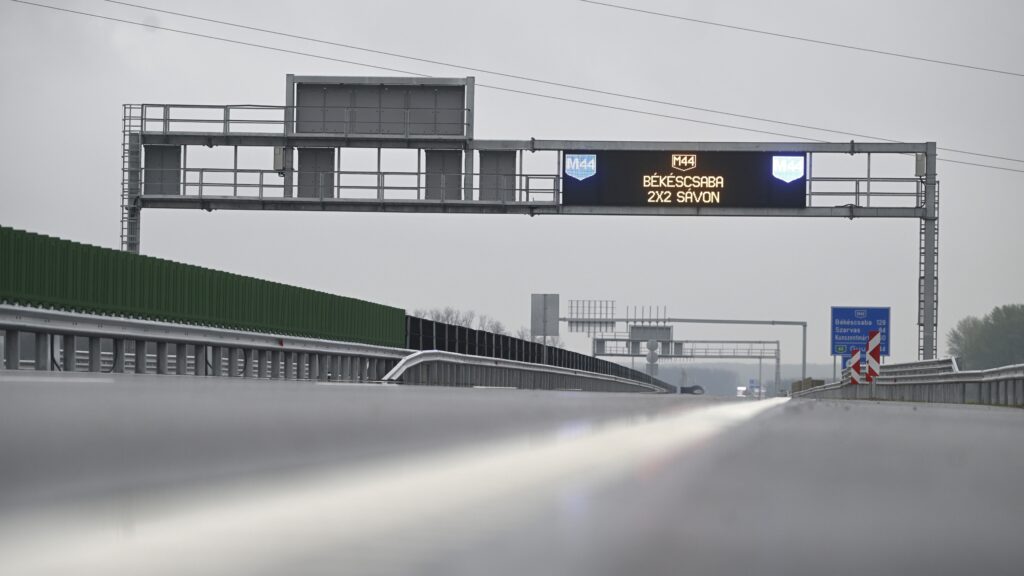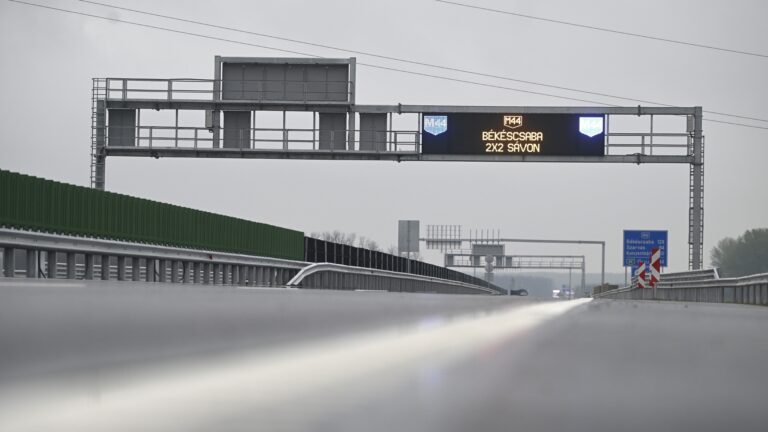The attractiveness of Hungary as an investment destination has grown rapidly, with the total value of FDI inflows doubling in just one year by the end of 2023. This trend of increasing investment is expected to continue as Hungary seeks further investment from the UAE, potentially attracting other Gulf countries as well.
On 14 March 2024, the United Arab Emirates’ Minister of Foreign Trade made an official visit to Budapest to meet with Minister of Foreign Affairs and Trade Péter Szijjártó. The primary agenda of the visit was the signing of a new economic cooperation agreement between the UAE and Hungary, aiming to bolster bilateral relations in various strategic sectors including industrial development, commerce, investment, tourism promotion, logistics, infrastructure, and real estate.
The UAE has emerged as Hungary’s foremost economic partner in the Gulf region.
Since 2019, trade turnover between the two nations has consistently risen, tripling by the end of 2023. According to data from the UAE Ministry of Economy, the trade volume surged from $400 million in 2019 to exceed the $1 billion mark in 2023. The growth rates for trade turnover were notable, with increases of 45 per cent, 46 per cent, and 23 per cent in 2021, 2022, and 2023, respectively.
Moreover, the UAE accounted for 62.5 per cent of Hungary’s total trade turnover with the Gulf Cooperation Council (GCC) in 2022, underlining the significant role it plays in Hungary’s economic engagements within the region. This deepening economic collaboration marks a significant milestone in the bilateral relationship between Hungary and the UAE, setting a robust framework for future cooperation and mutual growth.
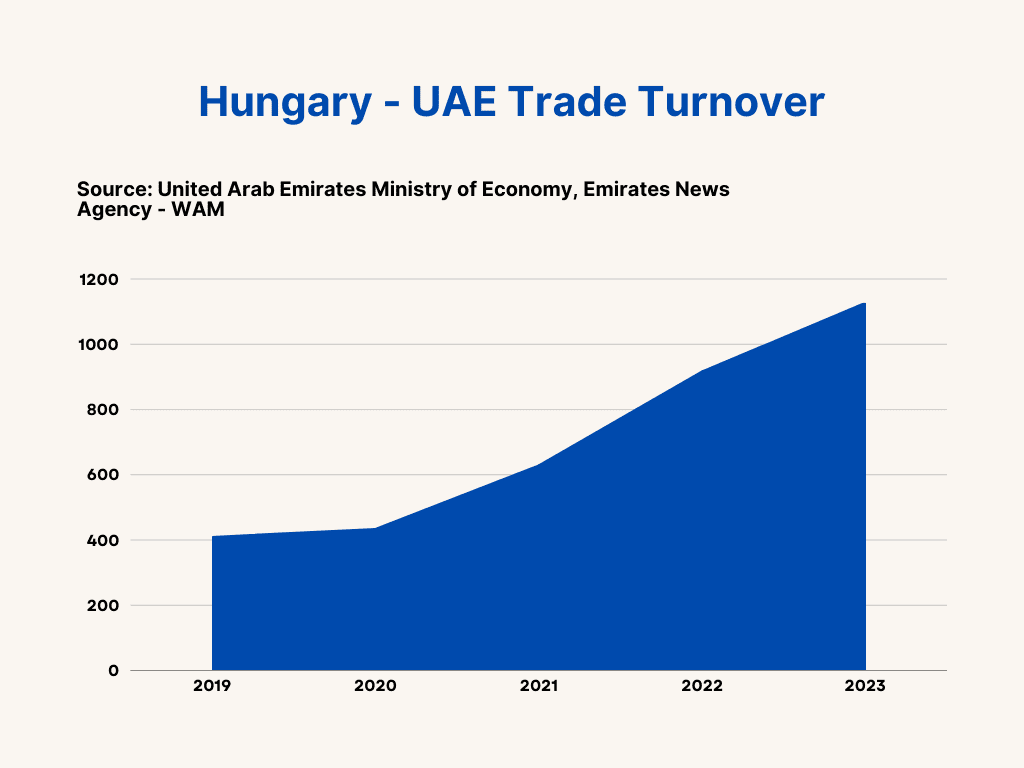
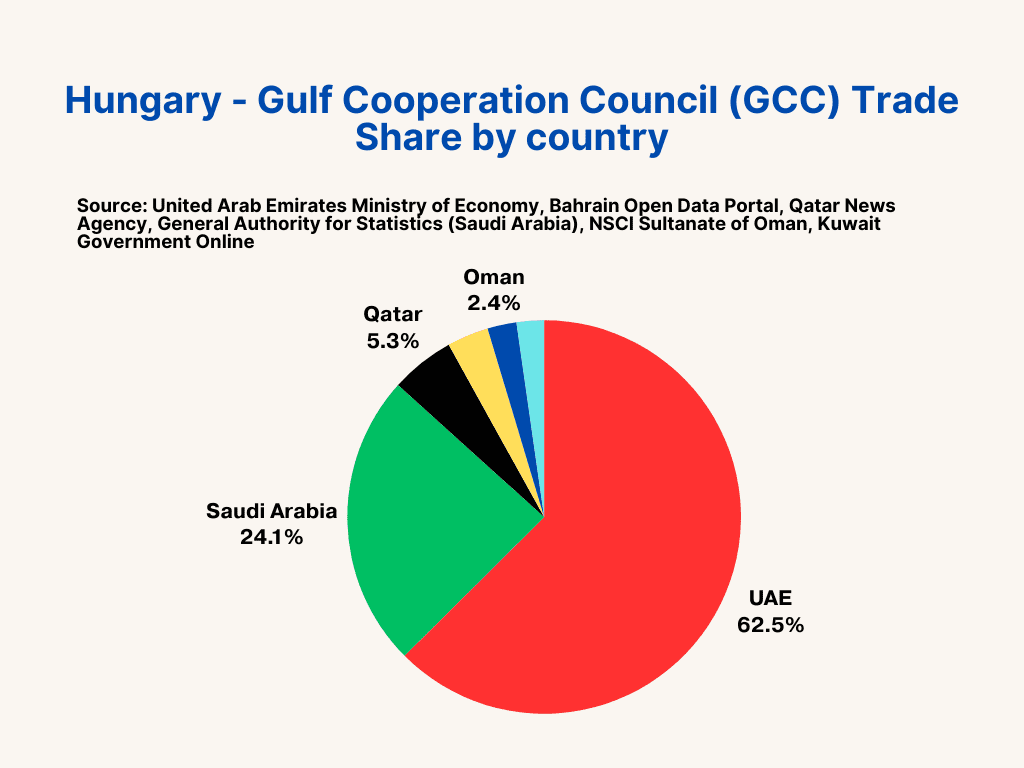
The newly forged economic cooperation agreement between Hungary and the United Arab Emirates is poised to significantly enhance bilateral economic relations. A key highlight of the agreement is the development plan for the rehabilitation of the old industrial area surrounding Budapest’s Rákosrendező rail station. In his address, Hungary’s Foreign Minister highlighted that the UAE, through its developer Eagle Hills, is poised to invest 5 billion euros in transforming this derelict area into a vibrant city quarter. The planned development aims to mirror the dynamic infrastructure style of Dubai, focusing on boosting tourism and fostering economic and business growth. This project is not only expected to revitalize a neglected part of Budapest but also to serve as a magnet for further investments from Gulf countries into Hungary.
The recent signing of a military and defence industry cooperation agreement between Hungary and the United Arab Emirates introduces a new dimension to their bilateral relations. Hungary's status as a NATO member, combined with the UAE's robust partnership with the alliance, suggests that this agreement may lead to a
more pronounced role for Hungary in security collaborations between NATO and the Gulf region.
On 22 April 2024 a significant advancement in Hungarian–UAE relations was achieved with the visit of Hungary's Minister of Defence Kristóf Szalay-Bobrovniczky to the United Arab Emirates. Meeting with UAE Minister of State for Defence Affairs Mohammed Fadel Al Mazrouei, they signed an agreement that introduces a robust military cooperation component to their bilateral ties. This agreement focuses on military development cooperation, covering military-purpose research and innovation, as well as the manufacturing of military equipment. The Hungarian Minister specifically highlighted Hungary's determination to enhance its contribution to defence cooperation between the European Union, NATO, and the MENA (Middle East North Africa) region, underlining a strong commitment to bolstering regional security.
The visit occurred just days after the launch of over 300 Iranian drones and missiles toward Israel, retaliating against airstrikes on the Iranian consulate in Damascus, Syria. On the same day, Hungary's Defence Council convened, with Prime Minister Viktor Orbán subsequently emphasizing Hungary's intention to bolster national security and enhance counterterrorism measures in the region.
The UAE stands as a pivotal strategic partner for NATO in the Gulf region, distinguished as the first and only MENA country to establish a mission with NATO in 2012. It actively participates in the Istanbul Cooperation Initiative (ICI) and has contributed to NATO-led missions in Bosnia, Libya, and Afghanistan. The alignment of NATO's and the UAE's security objectives fosters cooperation in counterterrorism and the prevention of extremism. This positions the UAE as a crucial ally for Hungary, particularly considering Hungary's ambition to be a significant contributor to NATO and EU defense relations with the MENA region in counterterrorism efforts.
The recent signing of a new 5-billion-euro investment plan to enhance the development of Hungary's capital and an agreement on military and defense industry cooperation signify two major milestones in UAE–Hungarian relations. The investment plan promises a substantial economic boost for Budapest, potentially drawing more investment from the Gulf countries. Concurrently, the military agreement introduces a new dimension to the bilateral ties, notably significant given Hungary’s aim to contribute to security cooperation between the EU, NATO, and MENA regions. These developments could be further explored during Hungary's presidency of the Council of the European Union, potentially strengthening counterterrorism efforts in the region.
Read more from the author:

